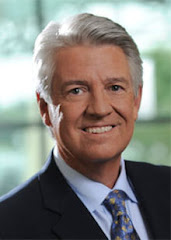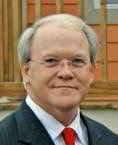 Former Southern Baptist pastor Ralph Lee Aaron “is now facing charges on 152 ‘atrocious acts’ stemming from allegations he sexually abused and tortured young boys” while on church camping trips. Numerous charges of possessing and disseminating child porn are also included within the 152 counts.
Former Southern Baptist pastor Ralph Lee Aaron “is now facing charges on 152 ‘atrocious acts’ stemming from allegations he sexually abused and tortured young boys” while on church camping trips. Numerous charges of possessing and disseminating child porn are also included within the 152 counts.The case came to light because a mother “heard rumors of a previous incident” involving pastor Aaron,” and she sat down and talked with her young son. The mother determined that her son may have had inappropriate contact with pastor Aaron, and so she went to the police.
That mom’s action served to get an alleged serial predator out of the pulpit. That mom’s action will work to protect other kids in the future. That mom’s action will mean that kids who have already been wounded may get help sooner rather than later.
Thank God for that mom.
But no thanks to any Southern Baptist leaders.
The “previous incident” that the mom heard “rumors” about stemmed from a 2005 complaint when pastor Aaron was at Victory Baptist Church in Andalusia, Alabama. No criminal charges were filed in 2005 because the statute of limitations had run out by the time the complaint was filed.
But even though no criminal charges were filed, the people at Victory Baptist were apparently concerned. According to a comment under the Andalusia Star-News article, Victory Baptist fired pastor Aaron. So . . . they got him out of their own church, but what did they do to protect others?
After leaving Victory Baptist, pastor Aaron went to Grace Christian Fellowship, a non-denominational church in the same town of Andalusia, Alabama. Do you think Victory Baptist warned the people at Grace Christian Fellowship?
Or did it all become nothing more than a “rumor” in that town?
A “rumor” that apparently only one woman had the gumption to take seriously.
I don’t know exactly what Victory Baptist did or didn’t do, but I know what typically happens. Churches don’t tell. They’re afraid the pastor will sue them for ruining his career.
In describing how another Baptist pastor was able to go from church to church despite multiple abuse allegations, writer Skip Hollandsworth of Texas Monthly magazine explained it this way: “To avoid defamation lawsuits, leaders of a church have an incentive to keep their mouths shut when it comes to questionable behavior among clergy.”
That’s Baptistland. It’s the place where preacher-predators can simply church-hop through the porous sieve of the Baptist network.
Apparently, this wasn’t the first time pastor Ralph Aaron church-hopped. A couple more comments under the Andalusia Star-News article say that, before arriving at Victory Baptist, pastor Aaron worked at still another Southern Baptist church in Samson, Alabama. One person, who says that Aaron was his pastor for 6 years at Samson, tells of how Aaron was “mysteriously fired” from that church. “One Sunday he was there and the next Sunday the deacons had ousted him,” he states.
So . . . it sounds as though the deacons at the Samson church may have also known something about pastor Aaron.
But did they warn others?
I doubt it. It was probably easier just to let him go rather than to look too closely.
And there’s nothing in Baptistland that requires anyone to look too closely.
That’s the problem.
If there were a professionally-staffed denominational review board -- people tasked with looking closely -- then maybe the deacons of the Samson church could have reported pastor Aaron and gotten some help with whatever the reasons were for their alleged “mysterious” firing of him.
And maybe if such a review board had existed, and if it kept records on clergy abuse complaints, then pastor Aaron may not have been placed in a new position of trust as pastor of Victory Baptist in Andalusia.
And even if Victory Baptist had hired Aaron anyway, if a denominational review board had existed, then maybe Victory Baptist could have reported the complaint made at its church, and perhaps Aaron would not have been able to get still another pastorate after leaving Victory.
And maybe if there had been some Southern Baptist database of clergy abuse complaints that Grace Christian Fellowship could have checked, then perhaps they would have decided not to hire pastor Aaron.
And maybe if there had been a denominational database as an authoritative source for information about pastor Aaron, instead of just local “rumors,” then maybe the people at Grace Christian Fellowship could have at least been warned.
Authorities now say that Aaron “had multiple male victims ranging in age from 8 to 10.”
There’s the tragedy of Baptist do-nothingness.
If Southern Baptist leaders had cared enough to create a denominational review board and a database of abuse reports, then maybe some of those 8 to 10 year old boys could have been spared.
________________
Update: BaptistPlanet reports that Ralph Aaron is still listed as a dean at Covington Theological Seminary in Opp, Alabama.






























